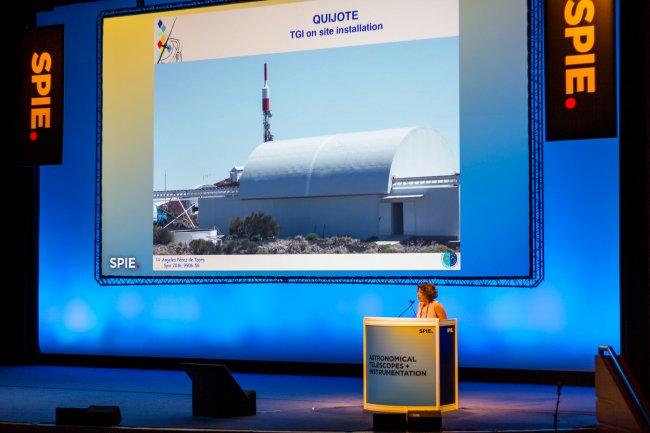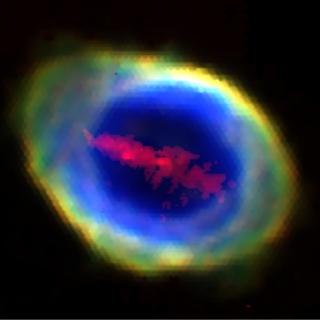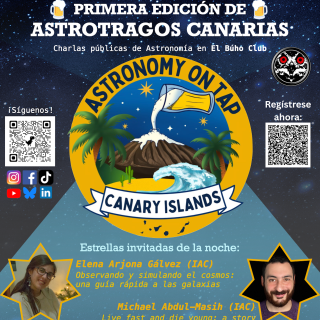A group of 20 researchers and engineers from the Instituto de Astrofisica de Canarias (IAC) participated in the biennial meeting of SPIE (Astronomical Telescopes + Instrumentation) celebrated in Edinburgh from June 26th to July 1st and organized by the International Society for Optics and Photonics: SPIE. The event, which comprises plenary sessions, speeches, meetings, courses, and exhibitions, was centred on recent advances in technology associated with telescopes, both on the ground and in space, and the development of astrophysical instrumentation.
Members of the IAC gave seven oral presentations during the meeting, most of them by engineers from the Instrumentation Division. Researchers and members of the Sky Quality group also participated. The papers present included topics such as the present status of the QUIJOTE experiment (designed to measure the polarization of the sky in microwaves) the adaptive optics for the Gran Telescopio CANARIAS (GTC) and the future European Solar Telescope (EST), the commissioning of EMIR (a near infrared spectrograph recently installed on the GTC), and results of studies of the sky quality over the Canary Observatories, among others.
In addition over 20 posters about a variety of technological developments in which the IAC is participating were presented, including optical and infrared instrumentation, microwave and high resolution techniques, among which we can pick out those related to the design, fabrication, mounting, verification and optimization of optical, electronic, and mechanical systems, as well as those of cryogenics, control and software.
The IAC had a stand of its own in the exhibition hall, where it could show directly its most recent advances in instrumentation, as well as its overall technical and service capability. In addition a video was projected sowing the installations and the technological equipment of the Instrumentation Division of the IAC, which had been specially produced for this event.
SPIE is an educational non-profit organization founded in 1955 to advance science based on light, via engineering and technology. The Society serves almost 264,000 members in some 166 countries, provided conferences, continuing education, books, journals, and the SPIE Digital Library.



